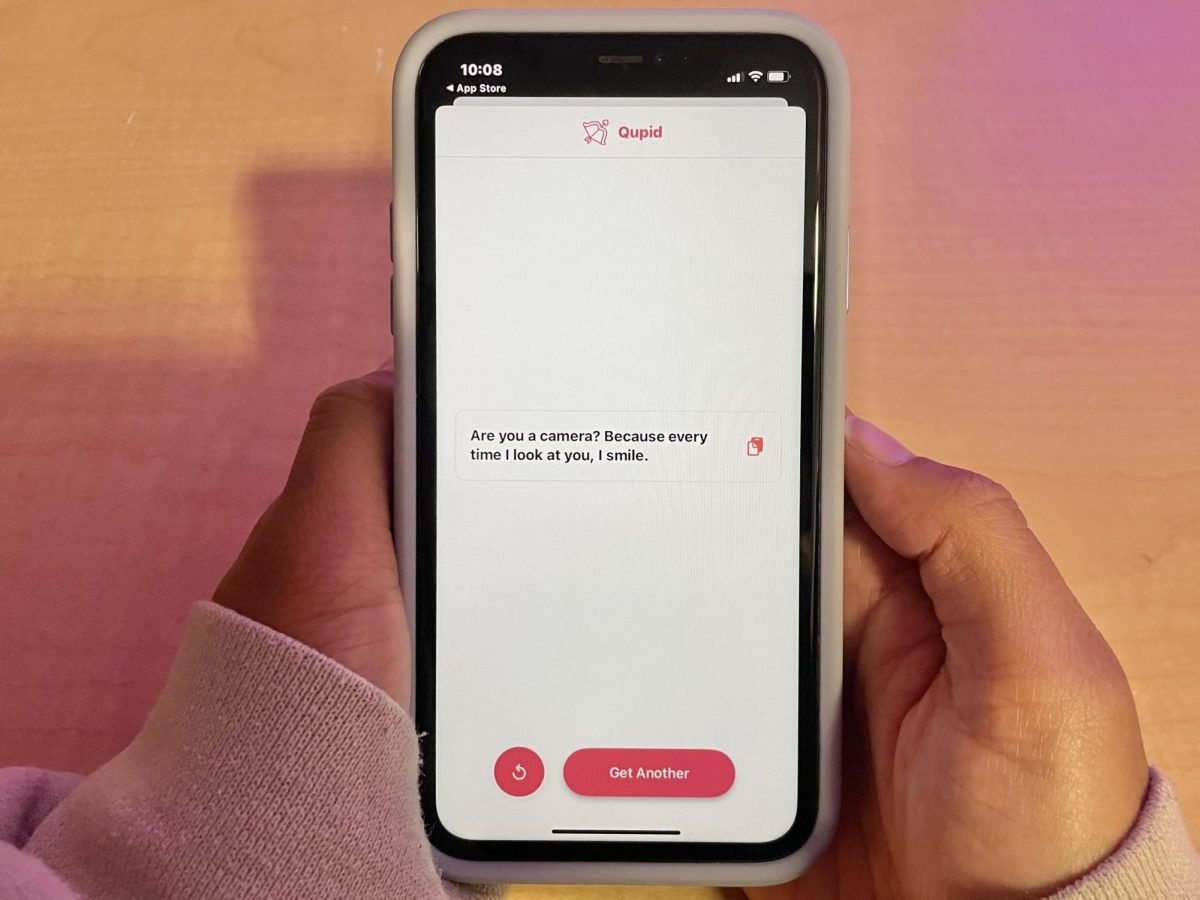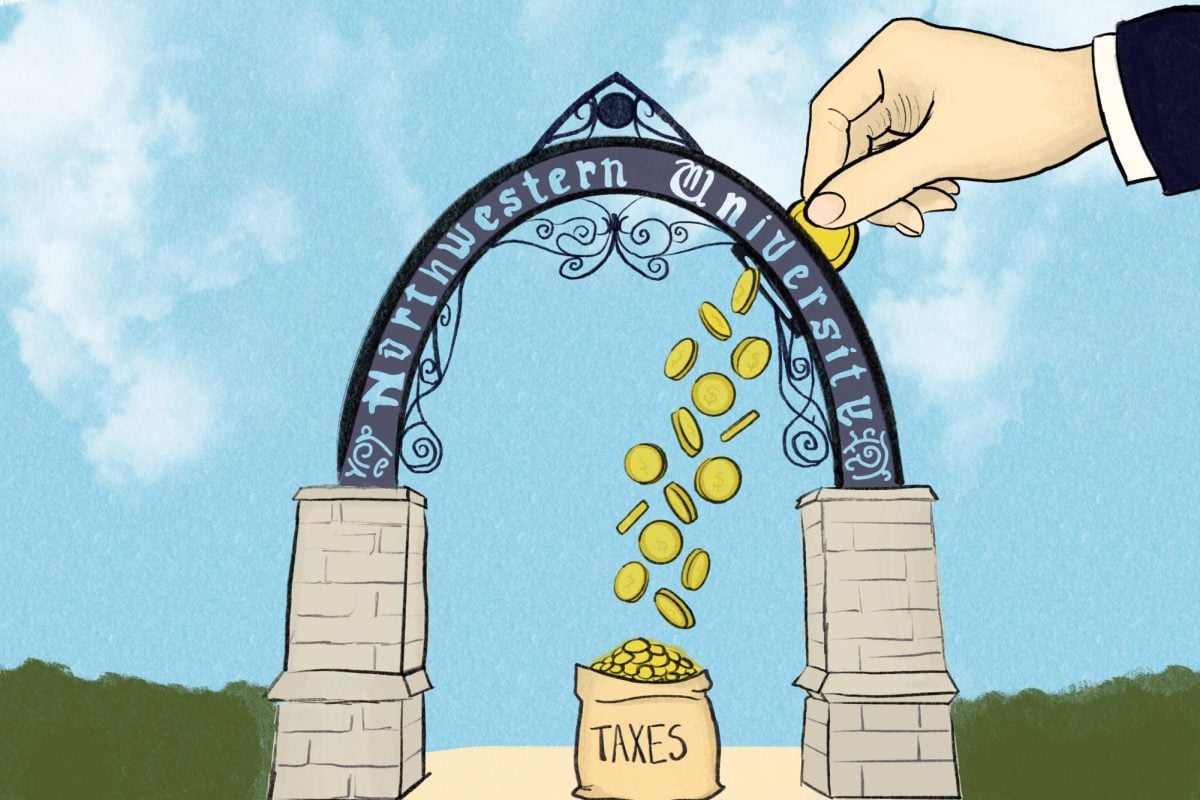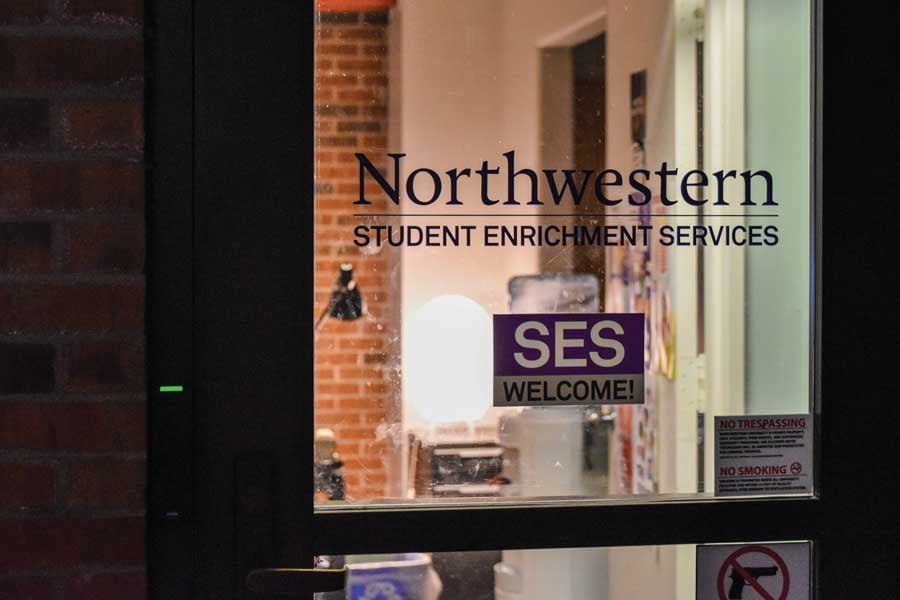Qupid, an AI dating assistant, offers a new way to start conversations on dating apps: AI-generated pickup lines.
Developed by Weinberg senior Andrew Gao, Qupid offers users both general and personalized pickup lines.
Users can generate personalized pickup lines by describing or uploading a screenshot of a conversation they’ve had with a potential match or that match’s online dating profile. Qupid then analyzes a predefined database of examples and fine tunes them to be related to users’ conversations.
“In today’s world, first impression is everything,” Gao said. “You don’t want to use the same opening line for everyone. So when ChatGPT came to the market, I was like, ‘Let’s integrate technology with dating.’”
Gao developed the idea for Qupid in January and launched it in September. A computer science major, he designed all the interface and backend for the app himself, primarily using Xcode, the program used to develop software for Apple products.
Knowing how to build a program and having the initiative to promote it on social media are crucial skills to get a software company started, Gao said. He said this included filming short-form texting stories on TikTok, Instagram Reels and YouTube shorts.
“There were a lot of iterations between talking to the users and then seeing what they want, and then also just improving it from the iterations,” Gao said. “I think that’s one of the most powerful things a software entrepreneur can do.”
Elizabeth Li, a second-year Ph.D. student in the Media, Technology and Society program, said she sees both the benefits and drawbacks to Qupid’s approach.
Li said she suspects Qupid may be beneficial in “deemphasizing” first impressions tied to people’s appearance, which can be “superficial.”
Dating apps, in general, complicate a “normal human social process” by adding pressure on physical appearance, Li said.
She said Qupid’s pickup lines are useful in the way they analyze and respond to text within a screenshot as opposed to the photos.
However, drawing from her research on people’s self-presentation in the context of dating apps, Li said she is wary that dependence on AI to start conversations may raise questions about autonomy and agency for dating app users.
“It’s almost like you’re putting that first impression into the hands of some unknown device,” Li said.
Gao said the value of having an app like Qupid goes beyond making a good first impression because it helps people who may struggle to start conversations.
McCormick sophomore Sophia Masterson said sometimes it can be “nerve-racking” to send the first message. But, she also wants the messages to be genuine.
“You don’t want it to make it seem like it is AI,” she said. “You don’t want it to seem fake.”
She added that if she received a meaningful message — AI-generated or not — she would be more intrigued and want to connect with the sender.
Gao said the feedback he has received from users so far has been “very positive.” He said the next steps for Qupid include offering more in-app language options to reach a larger audience of people from different cultures.
“Going forward, I think especially in 2024, we should all leverage AI in whichever way we can, if we find that useful,” he said.
Email: laurahorne2027@u.northwestern.edu
Related Stories:
— Northwestern debuts AI minor for non-computer science majors
— This NU student and his friend founded the next AI study tool sensation
— Northwestern Football alumni create AI research start-up Consensus







